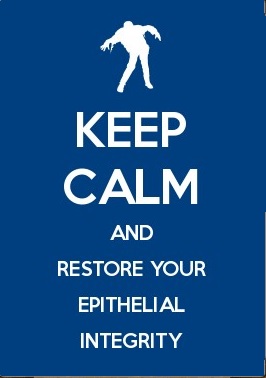Apparently there's a new History of Psychiatry book being peddled by one of the former presidents of the American Psychiatric Ass-ociation.
His thesis is that psychiatry was horrifying but is now in it's golden period and truly become a science worthy of respect.
It doesn't seem to be having the intended effect.
Shrinks: The Untold Story of Psychiatry by Jeffrey Lieberman review
Yet it’s difficult to share Lieberman’s triumphalist certainties. No medical specialisation outside American psychiatry counts it a success to have vastly grown the number of those who suffer from its burgeoning classifications; to have promulgated the taking of regular medication by everyone, including toddlers suffering from a new DSM category of illness that in the past might have been termed “rambunctious childhood”; or to have boosted mood-altering pill-popping to an extent street pushers would consider a bonanza.Booyah.
This reviewer goes a little further and points of some of Lieberman's own questionable history.
Yeah, this is the true picture of Psychiatry. There's a story like this for every major player.Lieberman’s ExperimentsIn his Globe series, Whitaker details how psychotic symptom exacerbation and provocation experiments were pioneered in 1974 by David Janowsky, who reported success in developing a new tool for studying schizophrenia. Janowsky found that giving diagnosed schizophrenics the psychostimulant drug methylphenidate (Ritalin, Concerta) caused “a dramatic intensification of pre-existing symptoms, such as hallucinations and delusions” and that other psychostimulants such as amphetamines also exacerbated psychosis. Janowsky’s work established the idea that psychosis-inducing drugs could be used as “challenge agents” for studying psychosis.In Lieberman’s own 1987 review of 36 studies in which psychostimulant drugs were administered to patients diagnosed with schizophrenia, he concluded that among psychostimulant drugs, methylphenidate has the greatest “psychotogenic potency.” And so Lieberman, in his subsequent experimentation on patients diagnosed with schizophrenia, administered methylphenidate, the psychostimulant with greatest likelihood to do damage.On the face of it, this experiment, in which a drug is administered to induce a psychotic reaction, is cruel enough. But it gets worse. Lieberman’s subjects were as young as 14 years old, and he did this experiment on “first-episode psychotic patients,” the majority of whom, research shows, ordinarily recover. Lieberman reports that the symptom of distrustfulness “significantly increased following the administration of methylphenidate.” So, after having a psychotic episode, patients are intravenously administered a psychostimulant drug designed to induce more psychotic behaviors, and they become more distrustful. It would be remarkable if such “treatment” would not make someone distrustful of doctors, perhaps for the remainder of their lives.
These are the people with the authority to institutionalize other people.
Maniacs Running the Asylum.

